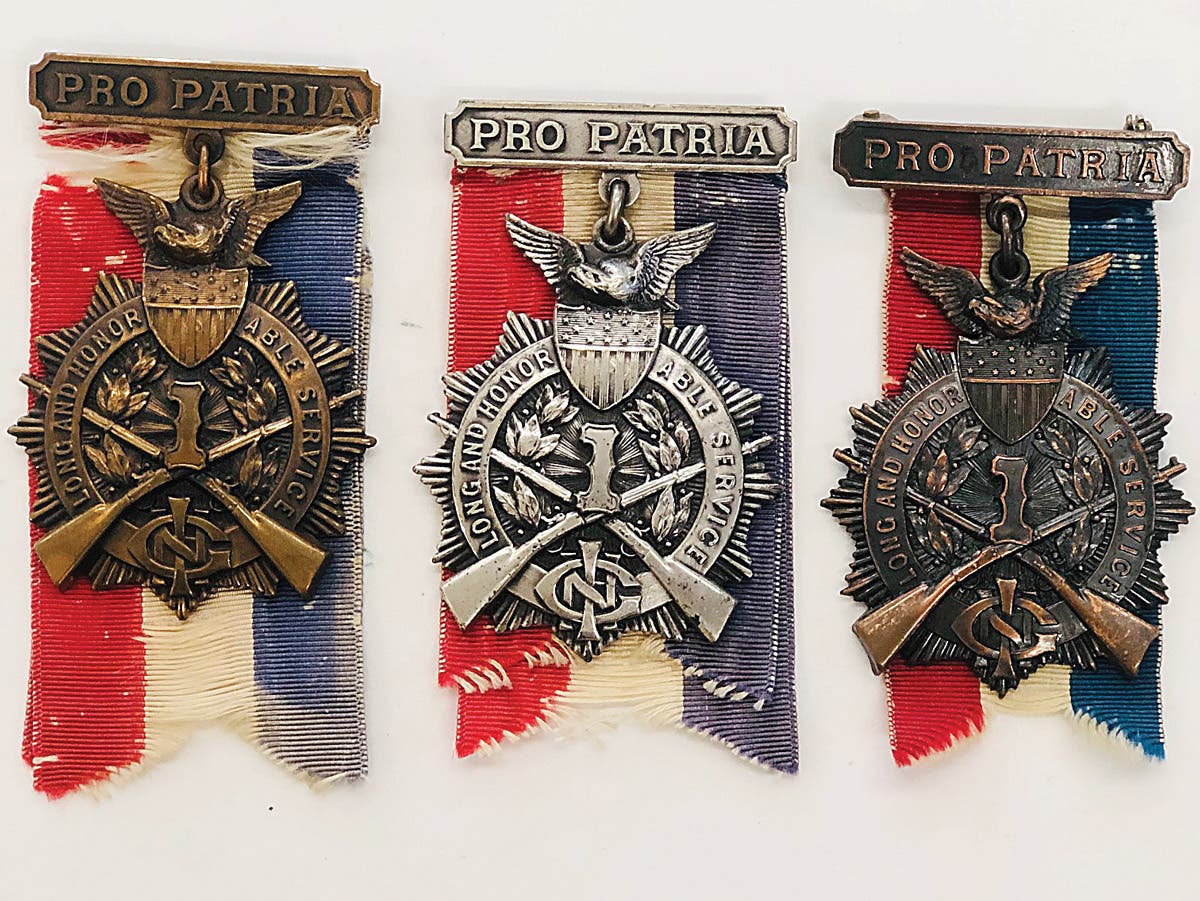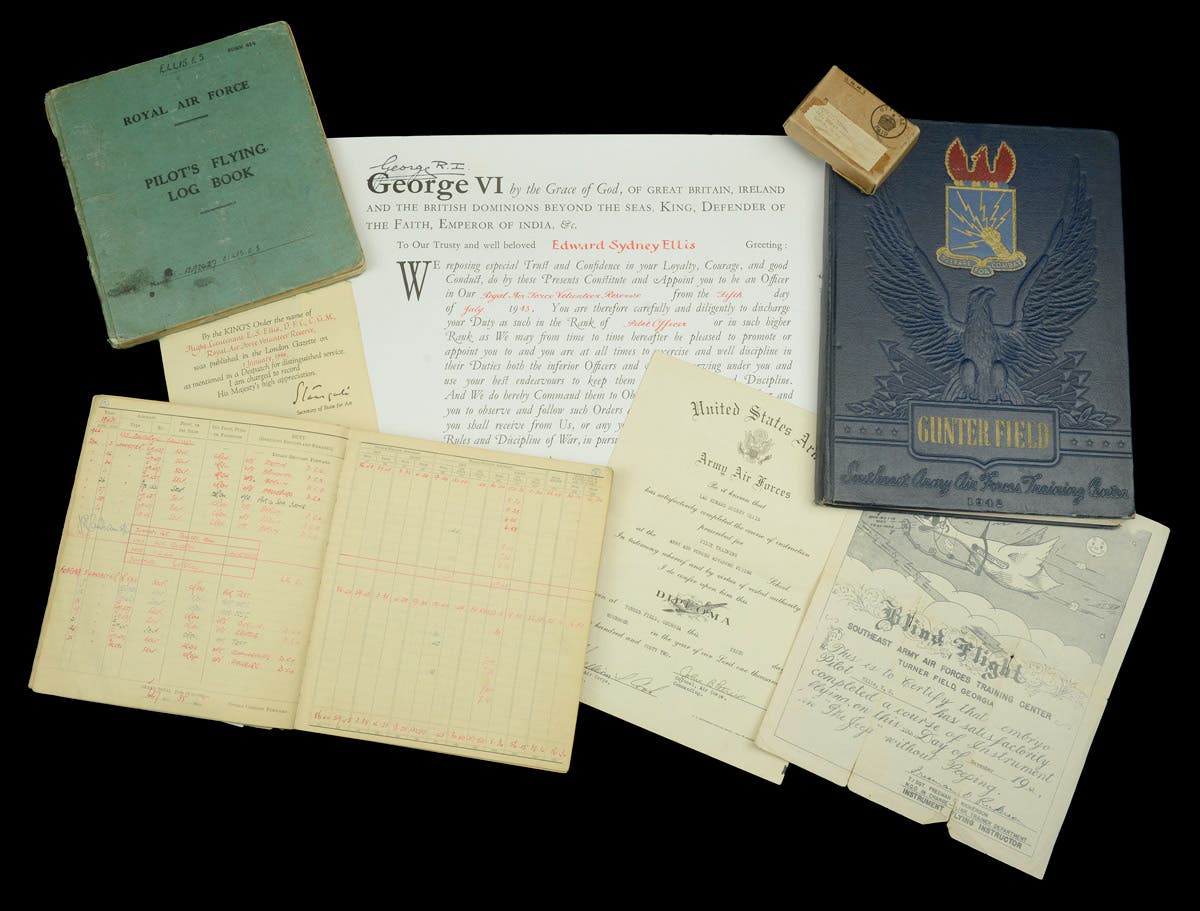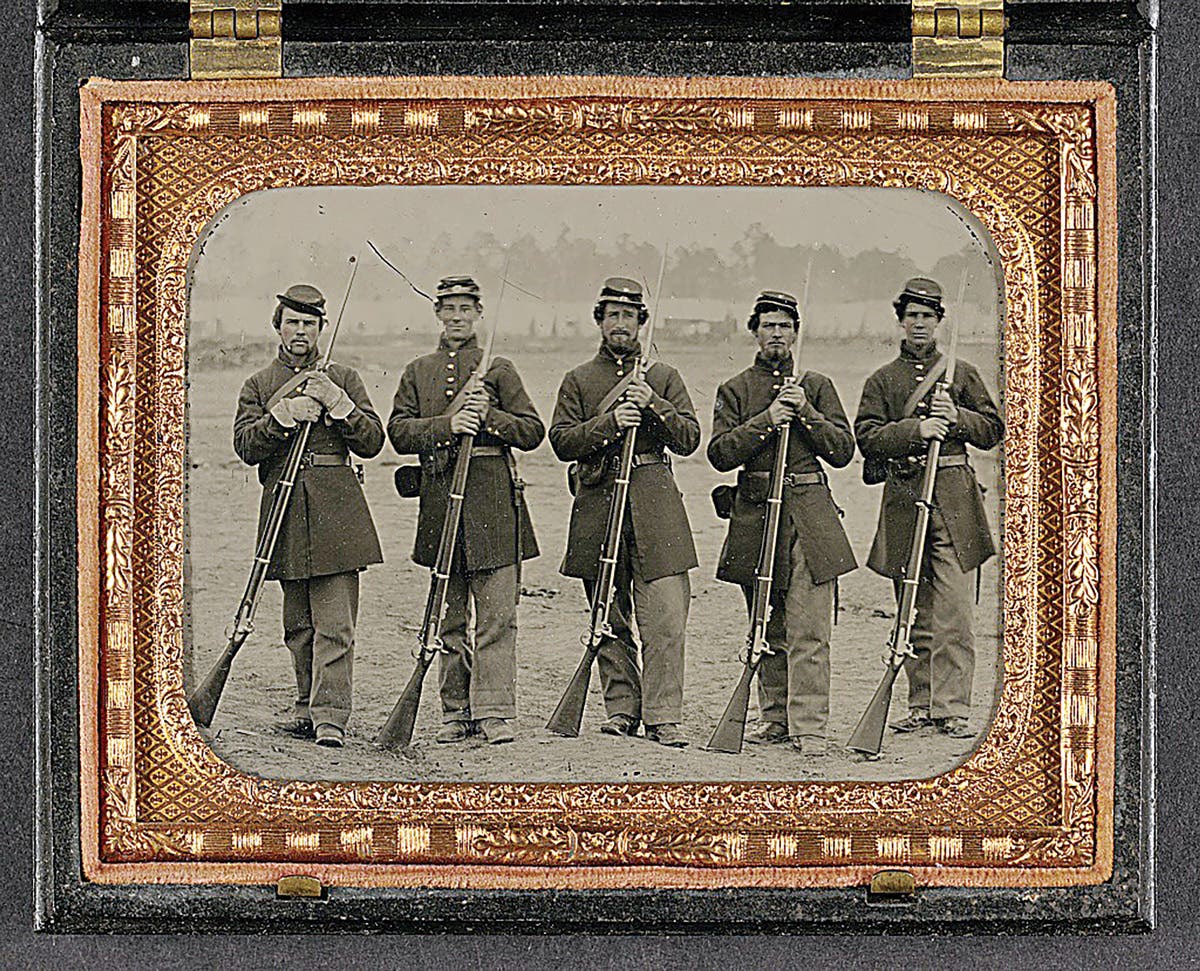Stolen Valor Struck Down. What Does it Mean?
In 2006, well-intentioned legislation was made into law under the noble-sounding title, “Stolen Valor.” The intent was obvious: Make it illegal for someone to falsely claim military service.
The intent may have been obvious, but the loose wording of the law actually dealt a severe blow to the collecting world by also making it illegal to buy or sell any medals authorized by Congress. Not even six years later, the Supreme Court declared Stolen Valor as “unconstitutional.” Does that mean the “all clear” has sounded for collectors?
In a 49-page decision to the U.S. v. Alvarez (11-210), the Supreme Court of the United States (SCOTUS) voted 6-3 that the Stolen Valor Act (18 U.S.C. § 704) is unconstitutional under the First Amendment. The Stolen Valor Act (SVA) had made it a crime to falsely claim to have received a military decoration or medal, even if such statements are made with no prior knowledge of their falsity or resulting harm. It did not even make an exception for satire or theatrical performances (including reenacting or other living history events). It is easy to see why the Court struck down the broad act, though it took seven years for it to finally be tested. Justice Kennedy’s opinion noted that content-based restrictions on speech required exacting scrutiny—something the Stolen Valor Act did not provide. A concurrence by Justices Breyer and Kagan, however, gives Congress an opportunity to redraft the statute to avoid constitutional violations. And therein, lies collectors’ and dealers’ problem.
Targeting collectors or dealers never seemed to be the intent of the authors of the Stolen Valor Act. Regardless, subsection a (remember this: “Subsection a”) of the Act made it illegal for “Whoever knowingly wears, purchases, attempts to purchase, solicits for purchase, mails, ships, imports, exports, produces blank certificates of receipt, manufactures or sells, attempts to sell, advertises for sale, trades, barters or exchanges for anything of value any decoration or medal authorized by Congress for the armed forces of the United States, or any of the service medals or badges awarded to members of such forces, or the ribbon, button or rosette of any such badge, decoration or medal, or any colorable imitations thereof… (remember the movie, Wedding Crashers? Apparently the authors of the law didn’t want the Purple Heart scene to play out in real life!) , except when authorized under regulations made pursuant to law(italics added for emphasis).
In December 2006, the House of Representatives passed their version of the Stolen Valor Act to come in line with a previous, comparable version passed by the Senate. Fifteen days later, President George Bush signed it into law. Apparently neither he, nor the legislators who crafted the law, gave much consideration to how the law might be applied.
The regulations referred to in the final line of Subsection a (“…except when authorized under regulations made pursuant to law”) are contained in Chapter 32, Code of Federal Regulations section 507 (32 CFR 507). The Code of Federal Regulations explains how to apply the law. In this case, the Institute of Heraldry (TIOH) writes the CFR section dealing with medals. 32 CFR 507 says anyone can manufacture, or sell, any medal except the Medal of Honor, as long as they make or sell medals conforming to government specifications. In particular, 507.7 says, “No certificate of authority to manufacture is required to sell articles listed in §507.8 of this part; however, sellers are responsible for insuring that any article they sell is manufactured in accordance with Government specifications using government furnished tools, bears a hallmark assigned by TIOH, and that the manufacturer has received a certification to manufacture that specific item prior to sale.”
Again, I will state, there was never any effort seriously focused on collectors or dealers. The intent was sound: The law would make it illegal for someone to pose as a member of, or the recipient of any honors from, the armed forces. Apparently it never occurred to any of the lawmakers, however, that thousands of Americans collect medals and even more like to pull on the uniform and equipment to portray and relive the lifestyles of U.S. soldiers throughout history. The law didn’t intend to threaten those people, but the wording sure made it appear as if it did. With his signature, President Bush seemingly made many citizens fear they were running afoul of the law.
The Hobby Responds
The reaction to the Stolen Valor Act was loud in 2006, but not really concentrated on changing the law. Hobbyists took it upon themselves to interpret the law. Scenarios played out on forums, and some dealers decided to curtail their sales of medals until they could see how the law would play out. A few even went as far as to solicit legal opinions. As a result of a long list of complaints received from dealers and collectors, Senator Kent Conrad, who sponsored the original bill, read a “Statement of Legislative Intent” into the Congressional Record. This Statement said that the SVA does not affect legitimate dealers or collectors. The Statement asserted that buying and selling medals among collectors was not affected by the SVA of 2005.
Regardless of the events surrounding the adoption of SVA of 2006, most people never explored the depths of the law and accepted section (a) as gospel. They felt the SVA still posed a serious threat to collecting. Many suspended their collecting and dealing activities, taking the attitude of, “Let’s wait and see,” hoping they wouldn’t become part of any test case of the law!
In reality, the fraternity of medal collectors had not been directly impacted. Cautiously, many prominent dealers—some of whom were emboldened by their own lawyers’ interpretation of the law and Senator Konrad’s Statement of Legislative Intent—resumed buying and selling U.S. military medals. But, in a significant blow to the health of the hobby, eBay decided to no longer permit the sale of several medals including, Purple Hearts, Distinguished Service Crosses and Navy Crosses.
Even with eBay’s anti-medal stance, however, the hobby generally returned to its pre-Stolen Valor comfort levels. Even among those who did not fully understand the law, the general consensus appeared to be, “They aren’t after us, but rather, those guys who pose as Green Berets or Navy Seals.” In fact, that is exactly how it played out. According to the Chicago Times, an estimated 20 prosecutions were instigated regarding provisions of the Stolen Valor Act in the first 18 months after becoming law. None of these cases involved collectors, but rather, individuals who falsely represented their military credentials. Any effort to change the law that may have originated in the collector world disappeared as the threat seemed to minimize.
Challenge to the Law
It took more than three years before the first challenge to the law reached the Supreme Court. Rick Strandlof, founder of Colorado Veterans Alliance, had been accused of seeking to raise funds for that organization by posing as Marine Captain "Rick Duncan" and claiming to have received a Silver Star and Purple Heart in the Iraq War. In addition to other charges, Strandlof had been charged with five misdemeanors related to violating the Act – specifically, making false claims about receiving military decorations. In January 2010, he challenged the constitutionality of the Stolen Valor Act in U.S. District Court in Denver, Colorado. Strandlof's attorney believed the law was too vague and that "protecting the reputation of military decorations is insufficient to survive [strict scrutiny]", a level of judicial review that requires the government to justify any limitation it places on free speech.[19] The Rutherford Institute, a Virginia-based civil liberties group, joined in the case on Jan. 20, 2010. "Such expression remains within the presumptive protection afforded pure speech by the First Amendment," the Institute's attorney wrote. "As such, the Stolen Valor Act is an unconstitutional restraint on the freedom of speech." On July 16, 2010, a federal judge in Denver ruled the Stolen Valor Act was “facially unconstitutional” because it violated free speech. The criminal case against Strandlof was dismissed.
U.S. District Judge Robert E. Blackburn issued his decision rejecting the prosecution’s argument that lying about having military medals dilutes their meaning and significance. “This wholly unsubstantiated assertion is, frankly, shocking and, indeed, unintentionally insulting to the profound sacrifices of military personnel the Stolen Valor Act purports to honor,” Blackburn wrote. "To suggest that the battlefield heroism of our servicemen and women is motivated in any way, let alone in a compelling way, by considerations of whether a medal may be awarded simply defies my comprehension."
Attorney Chris Beall, who filed an amicus curiae brief on behalf of the ACLU of Colorado, said the decision is remarkable. “The First Amendment protects speech we don't like," he said. "We don't need the First Amendment for speech people like. The government cannot criminalize a statement simply because it is false, no matter how important the statement is.” Beall points out Strandlof wasn't charged with stealing money meant for the veterans group, adding that laws are already in place for those crimes. “That’s plain-old, regular-vanilla everyday fraud, and we do prosecute that every day,” he said. “Congress does not need a special statute to prevent people from using false claims of valor in order to prevent fraud.” On Jan. 27, 2012, the U.S. Court of Appeals for the Tenth Circuit overruled the district court and reinstated the charges against Strandlof. Two judges on the three-judge panel held that false statements are not worthy of constitutional protection. In dissent, Judge Jerome Holmes wrote that the majority was reading language into the act to justify upholding it. Stolen Valor appeared as though it was going to withstand any challenge. That is, until two months later.
The United States had brought criminal charges against Xavier (Javier) Alvarez after he falsely claimed he had received the Medal of Honor. Specifically, after being elected to the Three Valleys Municipal Water District Board, Alvarez introduced himself at a meeting by stating, "I'm a retired marine of 25 years. I retired in the year 2001. Back in 1987, I was awarded the Congressional Medal of Honor. I got wounded many times by the same guy. I'm still around." Despite this assertion and as the Ninth Circuit stated, "Alvarez has never been awarded the Congressional Medal of Honor, nor has he spent a single day as a marine or in the service of any other branch of the United States armed forces. In short, with the exception of 'I'm still around,' his self-introduction was nothing but a series of bizarre lies." As part of a plea bargain, Alvarez conditionally pled guilty to the charge, while reserving the right to challenge the law on Constitutional grounds In the end, the Ninth Circuit, by adopting the lower court's language, concluded, "Alvarez 'live[s] in a world, a make-believe world where [he] just make[s] up stories all the time.... [T]here's no credibility in anything [he] say[s].'"
The U.S. District Court for the Central District of California decided Alvarez on Aug. 17, 2010, ruling the Stolen Valor Act unconstitutional. Specifically, in the 2–1 decision, Judge Milan Smith stated for the court that lies not within traditionally unprotected subsets of false facts are subject to First Amendment protection, the Stolen Valor Act is not subject to defamation law precedent, and there’s no compelling reason government interest in banning such lies. “The right to speak and write whatever one chooses – including, to some degree, worthless, offensive and demonstrable untruths – without cowering in fear of a powerful government is, in our view, an essential component of the protection afforded by the First Amendment,” Judge Smith wrote. If lying about a medal can be classified as a crime, Smith said, so many everyday lies could become criminal acts, such as lying about one’s age, misrepresenting one’s financial status on Facebook, or telling one’s mother falsehoods about drinking, smoking or sex.
On Oct. 17, 2011, the U.S. Supreme Court agreed to consider the validity of the law. On June 28, 2012, the Supreme Court found the law unconstitutional in a 6 to 3 decision, with Justices Scalia, Thomas and Alito dissenting. In United States v. Alvarez, the majority held that the Stolen Valor Act was an unconstitutional abridgment of the freedom of speech under the First Amendment. Five and a half years after it was signed into law, the Stolen Valor Act was struck down.
SO IT’S ALL GOOD, RIGHT?
Imagine the high-fiving between collectors and dealers when news of the debunked Stolen Valor Act trickled down! It would appear it is, once again, legal to buy and sell medals in the United States that had been authorized by Congress (though eBay has yet to reverse its decision to disallow the sale of certain U.S. medals on its auction site). I don’t want to rain on the parade, but don’t fire up the cigars and put your feet up for too long. There are still some questions that have yet to be adequately addressed.
Tom Lane, a researcher and scholar who is also the owner of the website, PurpleHearts.net, has devoted a lot of time to understanding the impact of the Stolen Valor Act. Acknowledging that the Court declared Sections (b) and (c) unconstitutional, he asks, “Does that mean section (a) remains as law? Or does the entire SVA get struck down?” If the entire law was struck down, he asks, “Then what happens? Does 18 USC 704 revert to its pre-2006 version? Or is there now no 18 USC 704?”
Without even waiting for clarification of the Supreme Court’s ruling, there are new drafts of Stolen Valor-like bills worming their way through Washington, D.C. Massachusetts Sen. Scott Brown and Nevada Republican Rep. Joe Heck quickly introduced a revised version that makes it a crime to lie about valor only if the liar profits. The bipartisan Stolen Valor Act of 2011introduced by Congressman Heck (H.R. 1775) and Senator Brown (S. 1728) makes a key change to the Stolen Valor Act of 2005bypunishing individuals who misrepresent their military service in order to profit. Based on the Supreme Court’s ruling, the legislation would be constitutional because it focuses on those who seek to benefit from their misrepresentations. This Bill calls for the following amendments of Section 704 of title 18, United States Code:
(1) by striking subsection (b); (2) by redesignating subsections (c) and (d) as subsections (b) and (c), respectively; (3) in subsection (b)(1), as redesignated by paragraph (2), by striking ‘‘or (b)’’; and (4) in subsection (c), as redesignated by paragraph (2), by striking ‘‘or (b)’’.
Again, the spirit of the Senator Brown and Representative Heck’s legislation is well-intentioned, but notice, that there is no mention of any intended revision to Subsection a—the subsection most felt had the potential to damage to the collecting hobby.It would behoove the hobby if the wording of Subsection a could be reworded to eliminate any possibility of the law being misapplied to prohibit the legal sale and purchase of military medals.
So, no, all is not “good.” It is back to the drawing board. We, the collectors and dealers as a community, didn’t do a great job at addressing the impact of the original Stolen Valor Act of 2005 before it was signed into law. We did, however, dodge a bullet by encouraging Senator Konrad to read a Statement of Legislative Intent into the Congressional Record.
Rarely is one given a second chance. But today, we have one. Before our legislators go too far, we have the opportunity to suggest the wording of H.R.1775 and S.1728 or any subsequent bill be clearly written as to not discourage the active sale, purchase and collecting of military medals and decorations.
In the meantime, buy, sell and trade with the knowledge that it is not now, nor was it under the Stolen Valor Act, illegal to buy, sell or collect U.S. military medals (except for the Medal of Honor…but that’s another story!).
John Adams-Graf
Editor, Military Trader and Military Vehicles Magazine
John Adams-Graf ("JAG" to most) is the editor of Military Trader and Military Vehicles Magazine. He has been a military collector for his entire life. The son of a WWII veteran, his writings carry many lessons from the Greatest Generation. JAG has authored several books, including multiple editions of Warman's WWII Collectibles, Civil War Collectibles, and the Standard Catalog of Civil War Firearms. He is a passionate shooter, wood-splitter, kayaker, and WWI AEF Tank Corps collector.








